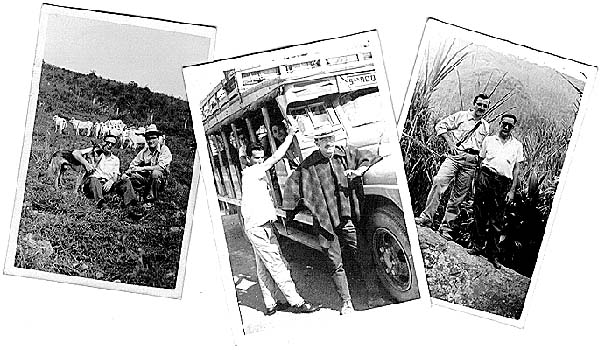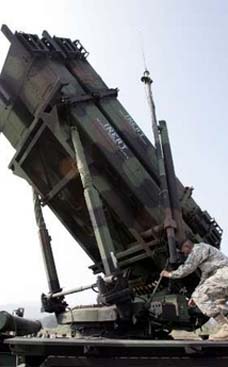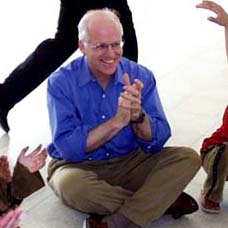
"After settling into villages, we bought horses and began Stage 1 of the community development process -- meeting the people and identifying their "felt needs." This involved long walks and mounted visits to peasant farms, hundreds of cups of Colombian espresso, uncountable bottles of beer and endless conversations about President Kennedy. In our meetings with farmers, we preached the gospel of community development. We organized village committees, and inspired collective action for schools, roads, athletic fields and aqueducts. "
Ronald Schwartz writes: We were Colombia One. We made history as the first Americans to begin training for the Peace Corps
Forum: Kennedy's orphans
September 17, 2006
Caption: Photographs of Peace Corps Volunteer Darrell Swarens in Colombia in the 1960's
On Sept. 5, 1961, just before midnight, 62 young men boarded a train at New York's Penn Station. Destination: the White House.
We were Colombia One. We made history as the first Americans to begin training for the Peace Corps. Now we were in the White House, waiting to meet the president, John F. Kennedy.
In a dimly lit East Room, Kennedy spoke to us of his hopes for the Peace Corps and the Alliance for Progress. He also touched on a campaign theme, "the ill-chosen, ill-briefed" ambassadors and confirmed his lack of confidence in the foreign policy establishment. Kennedy had read "The Ugly American" and wanted more of them. More Americans who, like the book's hero, worked at the grass roots and spoke the local language. The president shook our hands and said, "I want to hear what it's really like down there."
Colombia in 1961 was a wounded nation recovering from 13 years of political violence that claimed 300,000 lives. We were welcomed with warmth and enthusiasm, largely due to the charisma of JFK, and his Catholicism. Colombians ubiquitously referred to us as "los hijos de Kennedy" -- Kennedy's children. We also encountered critics on the left who viewed us as agents of Yankee imperialism and, for some, an arm of the Central Intelligence Agency.
Colombia One was jointly administered by the Peace Corps and CARE. We had a third layer of bureaucracy -- Accion Comunal, the Colombian Community Development Agency. It had a short history, a low position in a big ministry, and a poorly paid field staff. On a scorecard for "potential political disaster," the Peace Corps-CARE-Accion Comunal alliance earned an easy "10."
After settling into villages, we bought horses and began Stage 1 of the community development process -- meeting the people and identifying their "felt needs." This involved long walks and mounted visits to peasant farms, hundreds of cups of Colombian espresso, uncountable bottles of beer and endless conversations about President Kennedy. In our meetings with farmers, we preached the gospel of community development. We organized village committees, and inspired collective action for schools, roads, athletic fields and aqueducts.
Kennedy's Alliance for Progress raised expectations of financial aid. And we were occasionally challenged by community leaders who saw us as ambulatory checkbooks. In fact, we had no store of materials or equipment. As Kennedy's children, however, we had access to Colombian authorities and felt no hesitation in requesting support. Our major obstacles were our own impatience, the inevitable delays, and our frustration with unfulfilled government promises.
The number of projects completed in communities with Colombia One volunteers was far greater than anyone would have predicted. The official report, includes 44 schools, 65 classrooms, 29 rural roads, 27 aqueducts, four health centers, 26 cooperatives, 100 sports fields and several hundred latrines. A similar number of works are listed as "in progress."
Most observers agree Colombia One exceeded expectations. Our most important contribution was just being there and trying to get something done. As Americans working in rural villages, we brought attention and publicity to Accion Comunal. In a book on the Peace Corps, David Hapgood and Meridan Bennett note, that "Without Peace Corps help, Accion Comunal might have disappeared in 1962, when it was still shaky, insecure and overextended."
Today, there are more than 182,000 Returned Peace Corps Volunteers. They include governors, senators, representatives, ambassadors, authors and university presidents. Beyond the glitter of the notables, however, are the stories of returned volunteers from Colombia and 137 other countries. They suggest the torch passed to Kennedy is still carried by his orphans.
Members of Colombia One have worked in more than 100 countries. They have had careers and assignments with the World Bank, the United Nations, the U.S. Agency for International Development, CARE, the Red Cross and other development and humanitarian agencies. As economists, administrators and consultants, they have designed, managed and participated in hundreds of international projects: Establishing stock markets in Asia, low-cost housing and disaster relief in Latin America, factories in Colombia and Brazil, and training institutions in Africa and the Americas.
On the domestic front, Colombia One volunteers have been leaders in education, public service and the private sector. One, Steve Honore, received the Peace Corps' Franklin Williams Award for Outstanding Community Service. Another, Henry Jibaja set up VISTA (Volunteers In Service To America) in Florida. John Arango helped establish and is currently director of New Mexico's Legal Aid program. Others have worked with Model Cities, the Office of Equal Opportunity, Head Start and in programs for Native Americans and Southeast Asian refugees. A few anecdotes about former Colombia One volunteers illustrate "the rest of the story."
As a volunteer in Colombia, Bill Woodenberg, developed a technology to integrate woven bamboo strips into concrete slabs. Later, he adapted the process to industrial production and created factories and hundreds of jobs in Bangladesh and Togo. In Washington, Ned Chalker started the National Maritime Heritage Foundation. The NMHF is a partner with the District of Columbia and the Navy Department to create a Maritime Center and build a Tall Ship to represent the District. Reflecting on his Colombia experience, Mr. Chalker observed, "I met all these people who after you got to know them were just like the people I grew up with... except they spoke Spanish."
After retiring as president of a manufacturing firm, Michael Murray became a founding board member for the $100 million reconstruction of Forest Park in St. Louis. In Arizona, Phil Lopes is the Democrats' Leader in the State House of Representatives.
It has now been 45 years since our White House meeting. Today, Kennedy's dreams for Latin America continue to inspire passion and policy. And Colombia, despite the drugs and insecurity, has made enormous progress in education, health care, manufacturing, trade and communications.
As the Peace Corps celebrates its 45th year, the "ugly Americans" from Colombia One will raise glasses of aguardiente to say muchas, muchas gracias. We will thank the Colombians for their generosity, and for helping us learn that life's greatest reward lies in trying to make it better for others.
RONALD A. SCHWARZ
An anthropologist, development consultant and past faculty member at Williams College and Colgate and Johns Hopkins Universities, Mr. Schwarz was director of development solutions for Africa and spent 12 years in research and teaching in Colombia.


















